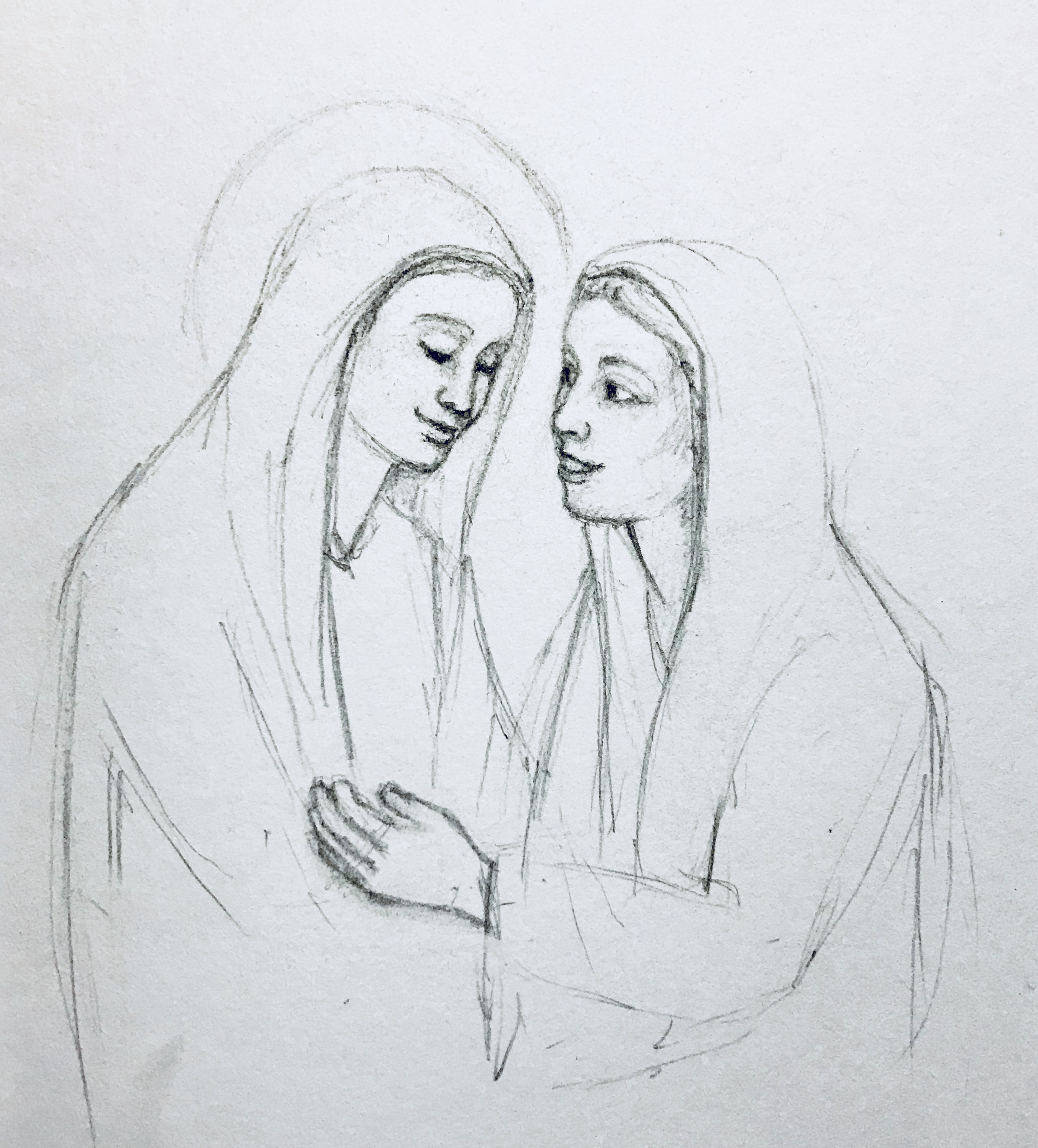John the Baptist’s birth heralds the end of the Old Covenant and the beginning of the New. Those who were full of speech and of words will become silent. Those Pharisees and Scribes, the teachers of the Law, they will all become silent and mute as the Voice begins to speak. John the Baptist is the Voice, and his birth gives voice to those who who had lost hope. Zechariah’s first word after his long silence is “John.” This name means “Yahweh’s graciousness.” Zechariah’s silence of hopelessness is finally broken when he speaks over his son the grace of God. His tongue is untied only to speak God’s grace into the life of his son. God has commanded him to name his son John, and in doing so He liberates Zechariah from the silence induced by his hopelessness and lack of trust.
Immaculate Heart of Mary
We celebrate two hearts as liturgical feasts. The Sacred Heart of Jesus is the deep mystery of the Incarnation: what is most central and personal in man is indistinguishable, totally one with the Word. The Immaculate Heart of Mary is also a miraculous work of God, but it defines the person of Mary and her particular role in salvation. The Immaculate Heart is the pure and transparent water of grace fully received into the heart of a woman. The waters of our life so often ebb and flow, the difficulties and struggles remove our peace and we can no longer see clearly. The Sacred Heart, existing by the divinity of the Word, is invincible on its own. The Immaculate Heart of Mary is invincible by a particular grace of God animating and raising it.
Visitation of the Blessed Virgin Mary

The hidden figures of the Visitation reveal a great mystery. Jesus and St. John the Baptist are both powerfully present and active well before they are even born. For St. John the Baptist this is a great grace – it was by no human quality or disposition that he came to know and rejoice at the voice of the mother of his Savior. The divine gift of prophesy and the motion of the Holy Spirit are the only possible explain for John’s in utero dance of jubilation. The most important events in our own personal history of salvation are similar: as glad and as free as we were to come to know our savior in a more meaningful way, it was always, “a total God move.” Even the gift of prophesy which helps us to see the way God is moving in the world in a mysteriously clear way is still God moving first our mind. We can cleverly attribute the text of the Psalm 138 as Jesus speaking to John the Baptist,

